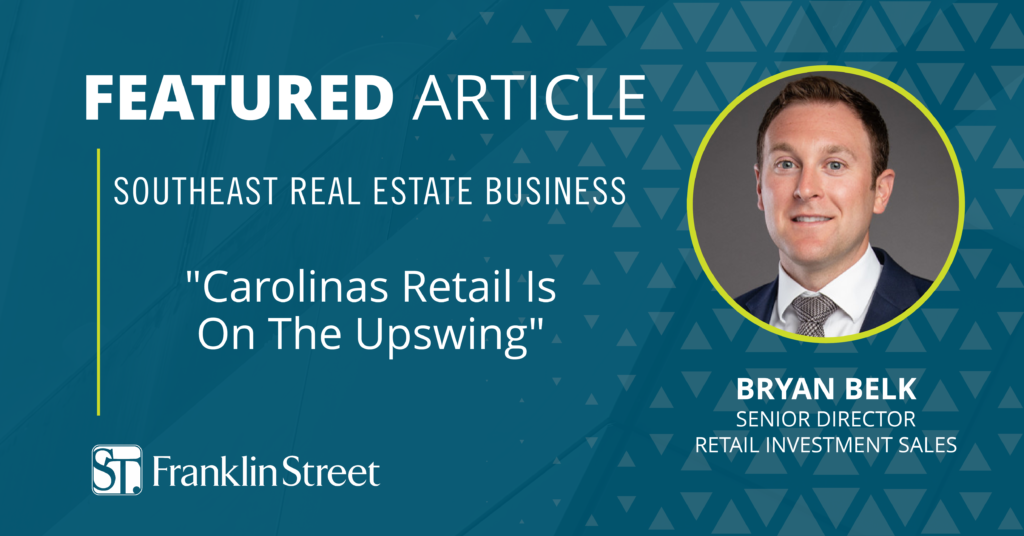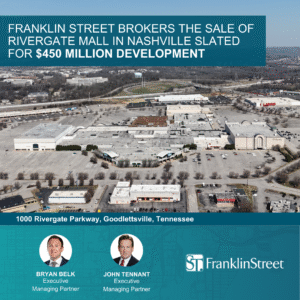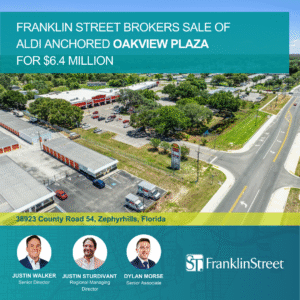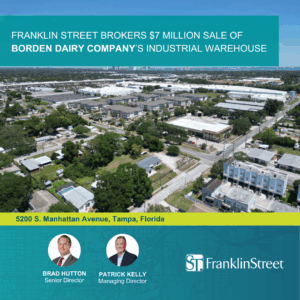Franklin Street’s Bryan Belk, Senior Director of Retail Investment Sales, was recently interviewed by Southeast Real Estate Business on the retail performance in the Carolinas market. Below are highlights from the article featuring some of Bryan’s key insights:
While there has been a lot of doom and gloom about retail nationally, it is hard to find much wrong with the sector in the Carolinas. Blessed with a strong employment base, growing population and moderate climate, retail in North Carolina and South Carolina is seeing strong performance — in both leasing and sales.
That improved performance is detected through positive signs like higher rents and a strong demand for retail assets from investors. The rate of job creation from multiple employment sectors has continued to improve in the two state region, creating more demand for retail goods as the area’s
population grows steadily.
As investors monitor this growing, well-educated population that has a high disposable income in the Carolinas, prices for retail properties are pressing higher as competition increases. On the leasing side, consumer demand and pent-up expansion plans from retailers have led to higher rents in many of the in many of the Carolinas’ top markets as well.
…
Bryan Belk, senior director of retail investment sales with Franklin Street, says he has noticed that prices for retail assets in the Carolinas have gone up in part because low interest rates have caused investors to be willing to pay more for a property and still achieve strong returns.
“Pricing has increased over this time frame due to the lack of available product on the market for investors to buy. There are more investors chasing a smaller than average inventory and it’s creating a bidding war over all retail asset types,” says Belk. “On assets we typically would have received three to four offers on, we are now seeing 10 to 12 bids.”
…
Retailers are not scared off by the higher rental rates that landlords are
charging in the Carolinas. Belk with Franklin Street says the high demand
has helped many shopping center owners fill up long-vacant space.
“Many owners who may have had some vacancies in their shopping centers for the last three to four years are now seeing leasing activity on those spaces,” says Belk.
Retail professionals say the Carolinas have become a preferred destination
for retailers for a laundry list of reasons, including a moderate climate,
well-educated workforce, a high need for new retail developments and properties, a relatively low cost of living and higher disposable incomes. Many markets are seeing their Great Recession era vacancies dissipate in the wake of the pandemic, ironically. Population growth has helped justify the need for many retailers to open more stores or enter the market.




